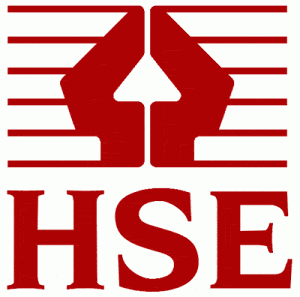The Health and Safety Executive (HSE) is proposing to reduce unannounced workplace inspections by a third, the BBC has learned
 A leaked letter from the HSE outlines plans to withdraw inspections from entire sectors of industry, including some where “significant risk” remains.
A leaked letter from the HSE outlines plans to withdraw inspections from entire sectors of industry, including some where “significant risk” remains.
The organisation is facing a 35% cut in its government grant, leading to concerns for workplace safety.
The HSE said no final decision had been made.
HSE inspectors and their counterparts in local authority environmental health departments carry out thousands of visits to business premises each year.
The unannounced “knock on the door” has traditionally formed a key aspect of the HSE’s approach to regulation, and is credited with helping to prevent accidents and reduce the number of workplace deaths, which currently stand at an all-time low.
But in February, chief executive Geoffrey Podger proposed a reduction in what the HSE calls “proactive inspections”. In a letter obtained by the BBC’s File on 4 programme, he outlines plans to reduce HSE inspections by a third.
The HSE’s job is to make the workplace safe, but now it’s being explicitly instructed not to do that job right”
Professor Rory O’Neill Editor, Hazards magazine said The letter is a blueprint of proposed wide-ranging changes to HSE operations in the light of a 35% cut to its government grant. It recommends a departure from face-to-face contact in favour of web-based and other initiatives.
The letter identifies three high hazard sectors including the nuclear, offshore and chemical industries which will be ring-fenced from the proposed cuts.
It also states that some other industries will still remain subject to unannounced visits, but these are not identified. But the letter also outlines two categories where proactive inspections will be entirely withdrawn from future HSE operations.
In one case this is put down to the “relative cost-effectivenes” of the procedure.
For another, inspections are deemed not “necessary or useful” despite the HSE acknowledging the “significant risk'” posed by the industries under consideration.
The move has caused concern among health and safety campaigners.
Professor Rory O’Neill, editor of the safety magazine Hazards, believes it signals a fundamental departure from the HSE’s role as safety watchdog.
“The HSE’s job is to make the workplace safe, but now it’s being explicitly instructed not to do that job right,” he said.
“The implication for health and safety is that workplaces will become deregulated.”
Dr Courtney Davis of Sussex University reviewed the worldwide evidence for the value of proactive inspections, and believes any reduction is likely to have a detrimental impact on worker safety.
“The most robust studies show that inspection plus enforcement are associated with a decline in injury rates of 22% for the following three years,” she said.
“The evidence relating to new, soft interventions is much weaker, and almost non-existent.
“It doesn’t appear to be the case that these alternatives are effective in improving compliance with health and safety law or injury rates.”
An HSE spokesperson said: “We regularly consult with partner organisations on future ways of working. Discussions do not constitute a final decision so it would be inappropriate for us to comment further at this time.
“The emphasis should be on outcomes – the incidence of accidents and ill-health – rather than the number of particular types of inputs by the regulator.
“The estimated number of working days lost due to workplace injuries and ill-health is now the lowest it has ever been in Britain.”
File on 4 is on BBC Radio 4 on Tuesday 8 March at 2000 GMT and Sunday 13 March at 1700 GMT. Listen again via the BBC iPlayer or download the podcast.
Via: the BBC

